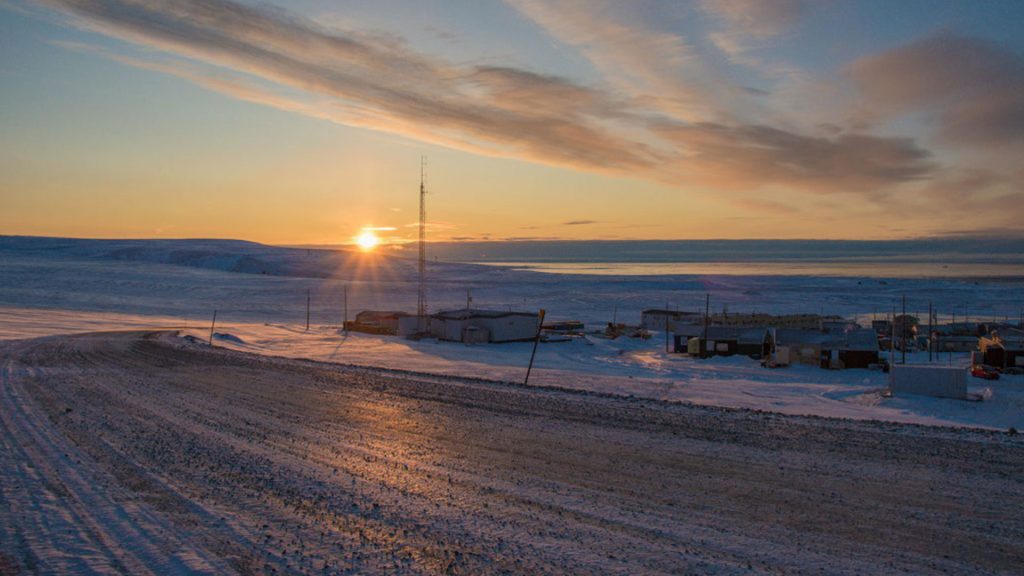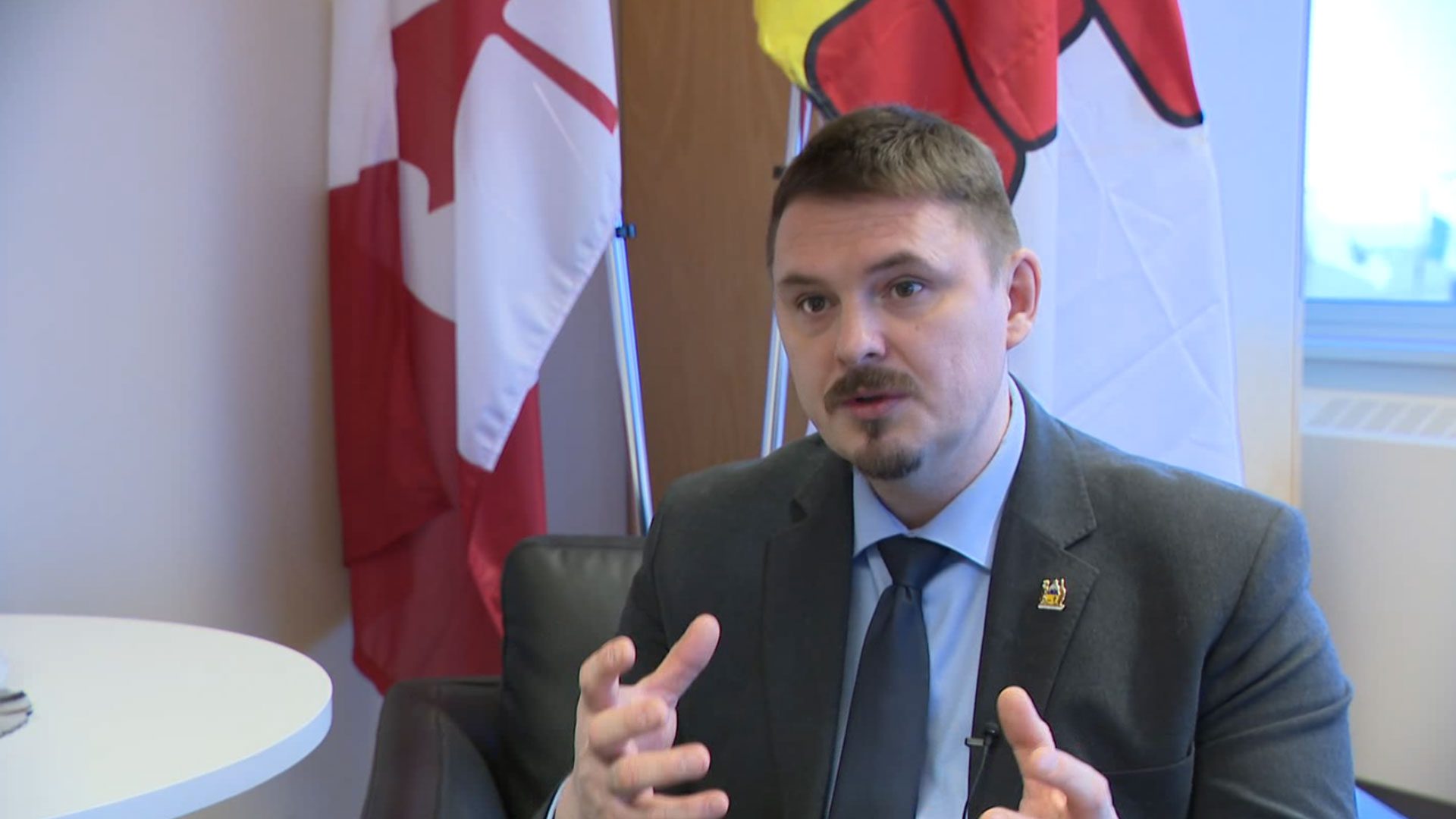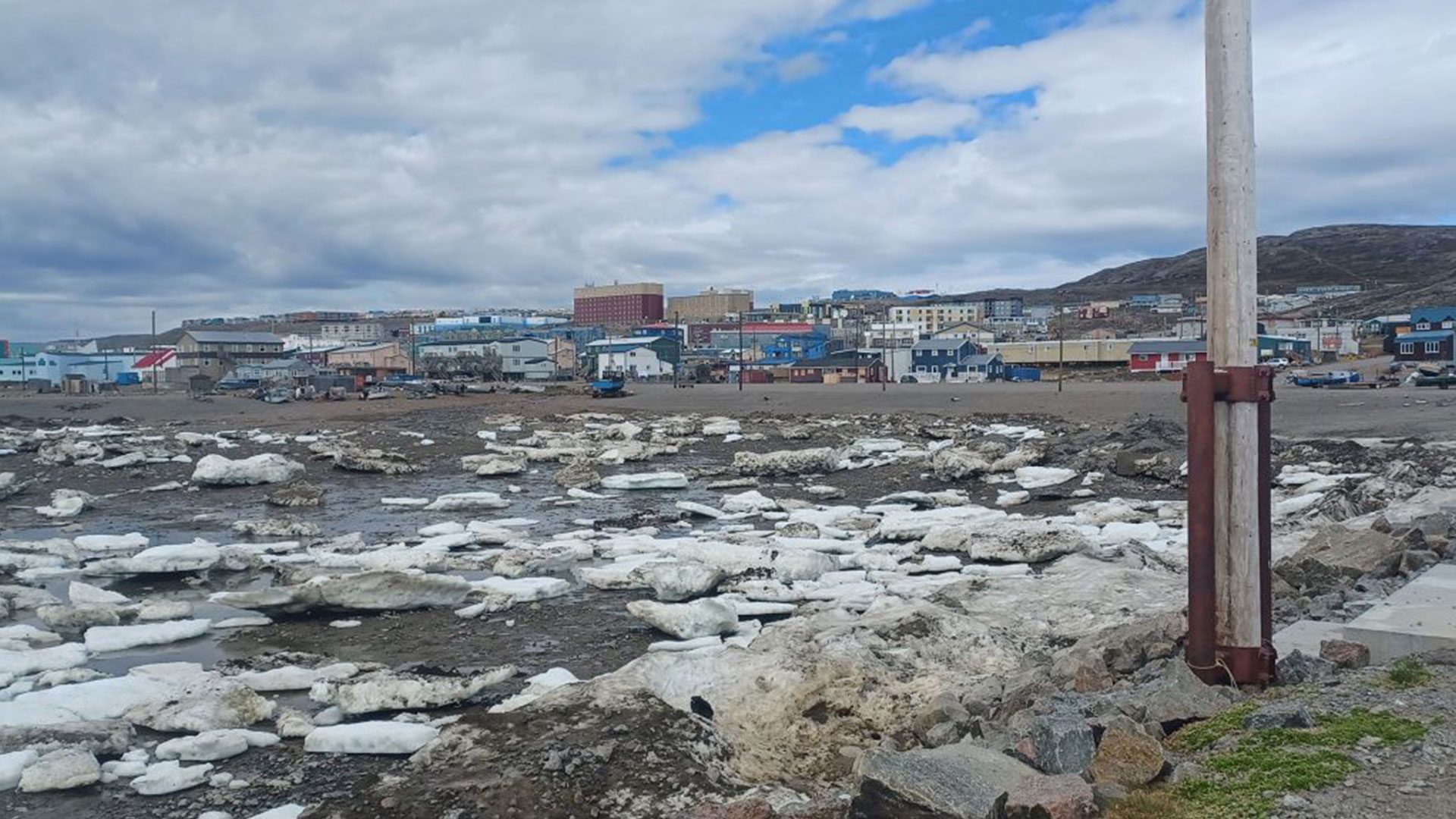
Nunavut will soon have control of its land and resources after signing a game-changing devolution agreement with the federal government in Iqaluit on Thursday.
The ceremony in the capital of the northern territory was attended by Nunavut Premier P.J. Akeegok, Prime Minister Justin Trudeau, Aluki Kotierk, president of Nunavut Tunngavik Inc., and other dignitaries including recently retired Nunavut Sen. Dennis Patterson.
“Devolution is really the responsibility of managing our own resources,” Akeegok told APTN News ahead of the ceremony. “For many years we’ve had Ottawa make the final decisions on what our future entails and managing our resources.
“With this very historic, very exciting devolution agreement will now transfer that responsibility of renewable and non-renewable resources within our lands to Nunavut.”
At the moment, Canada makes all the final decisions for the development of natural resources in Nunavut and collects all the royalties. The devolution agreement will change that.
“It’s so important to ensure that decision-making happens at home,” added Akeegok.
The devolution agreement will also allow Nunavut to collect royalties on its natural resource projects and amend land and resource management laws.
“Devolution does not amend the Constitution of Canada, nor alter the constitutional status of Nunavut, but it does allow for the last remaining provincial-like powers to be transferred to the territory and completes a decades-long process that was envisioned as part of the land claims process for Nunavut,” the territory explains in an outline of the 100-page agreement.

The deal was struck between the government of Canada, the government of Nunavut and Nunavut Tunngavik Inc. (NTI), the organization that represents Nunavummiut’s treaty negotiations.
According to the agreement, Canada will provide $67.25 million for “transitional activities” and $15 million for training for a total of $82.25 million. The agreement also says the federal government will increase its territorial funding transfer by $85.8 million to just over $2.2 billion for 2023-24.
“There’s a lot of work before us,” noted Akeegok. “We’ll have to look at transferring different assets – whether it’s the office buildings spaces. Looking at the assets like, the most important pieces which are people – the employees that will help us manage the resources and do the workload in terms of the responsibility of taking devolution on.”
There are 13 “chapters” in the agreement that take effect on April 1, 2024. They address issues such as the transfer of responsibilities, properties, contracts, federal employees, financial matters, dispute resolution and contaminated sites that the government of Canada will not transfer “until they are remediated.”
Read the agreement here:
Patterson, who retired in December after 14 years in the upper chamber, told APTN the agreement is “going to signal a new era of true self-government in Nunavut.”
“To me it’s constitutional development,” he said. “It’s giving Nunavut province-like authority that two other territories already won in 2003 and 2014 in Yukon and N.W.T. – and I think it’s an act of decolonization.
“The remote colonial administration in Ottawa, maybe well-intentioned, have been running our affairs without us having control. And, so to me, it’s decolonization, and it’s a giant leap forward for the territorial government and the Inuit who are partners in this deal.”
The issues facing Nunavut’s 25 communities and 39,000 people in an area the size of Western Europe are vast and challenging.
Tuberculosis continues to plague the population, new housing needs are in the billions, and the cost of living, including higher food and fuel costs, is crippling.
Language is also an issue, with fewer Inuit speaking their language. Nunavut’s language commissioner said in a 2018-2019 report that 23,225 Nunavut residents (65.3% of the population) reported Inuktut as a mother tongue…down from previous censuses (71.7% in 2001).”
Last territory to sign a deal

Politically, the idea of Nunavut was introduced in the House of Commons by former NDP MP Peter Ittinuar in his first speech of Oct. 16. 1979.
He said: “I now call upon the Government of Canada to recognize the legitimate aspirations of the people of Nunavut to become equal participants in the Canadian confederation.”
Ittinuar went on to help negotiate a deal that saw Nunavut become the third territory nearly 20 years later.
Now, it’s the last to sign a devolution deal with Ottawa. Yukon signed in 2003 and the Northwest Territories in 2014.
Territories are like provinces in nearly every respect; they’re responsible for health, social services and education.
Negotiations over devolution have been going on since Nunavut was formed in 1999.
In 2008, Canada, Nunavut and NTI signed a Lands and Resources Devolution Negotiation Protocol, one of the steps in the devolution process. Then, in August 2019, the agreement in principle was signed that outlined what issues needed to be negotiated to make devolution work.
“People are going to realize they now have the ability to manage our own affairs and we can no longer turn to or blame, you know, a distant colonial master,” said Patterson. “Decisions made in Nunavut by the elected government will be decisions that respond to the needs and wishes of the people of Nunavut.”
Both Parliament and the Nunavut legislature have some paperwork to do before devolution becomes official.
In Ottawa, MPs must pass the legislative changes and amend or appeal a number of statutes and regulations, while the Nunavut Assembly must replace the repealed federal statutes and regulations with its own.
The three-year implementation period ends on April 1, 2027.
With files from Fraser Needham









